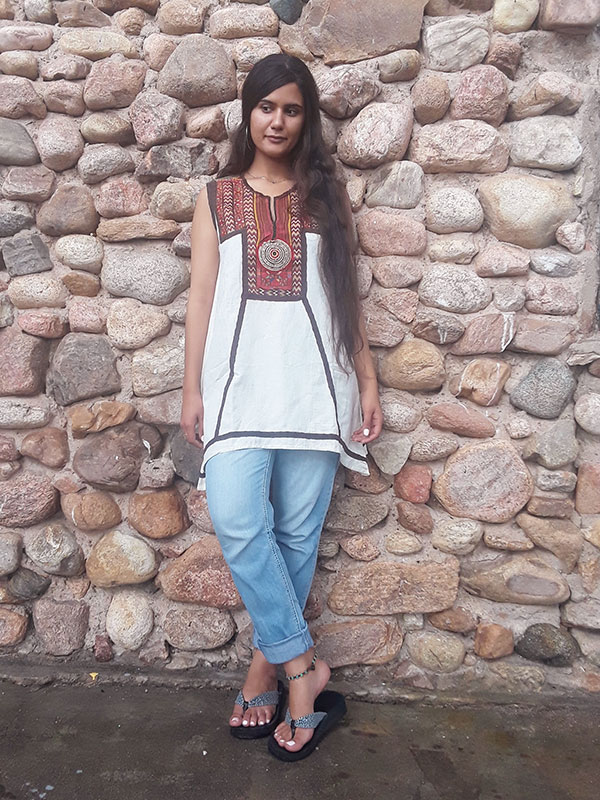Pre-Islamic geometric motifs of flowers and nature adorn the highly refined textiles produced by members of the artist collective Poetic Threads of Pakistan, nestled in the country’s Swat Valley. In this area, master designers have long been revered for producing items which have protective and talismanic symbolism—properties which are still preserved and treasured today.
Per generations of tradition, creative techniques are here passed down from mother to daughter, and Poetic Threads of Pakistan hopes to preserve this important heritage, while also revitalizing centuries-old design sensibilities. Recently, this embroidery work has become a means for many women and girls to support their families and encourage local economic development.
Chadors, or traditional shawls, are worn by women as an integral part of daily life, and as such they are a cornerstone of Poetic Threads of Pakistan’s creative output. Alongside these more traditional influences, however, exists a wholly new approach to gathering material: upcycling discarded or used vintage fabrics. By salvaging parts of old dresses, artists repurpose items and create new and innovative apparel, while still showcasing Pakistan’s marvelously beautiful tribal designs and patterns. Sometimes larger fabrics are fashioned into garments like kimonos and caftans, garments not normally found in this part of Pakistan.
Items produced by this collective incorporate handwoven and machine milled cotton, linen, wool, chiffon, and rayon. Swati embroidery is traditionally made for personal and domestic use such as on women’s tunics and dresses, shawls, table covers, bed sheets, pillowcases, and wall hangings.
